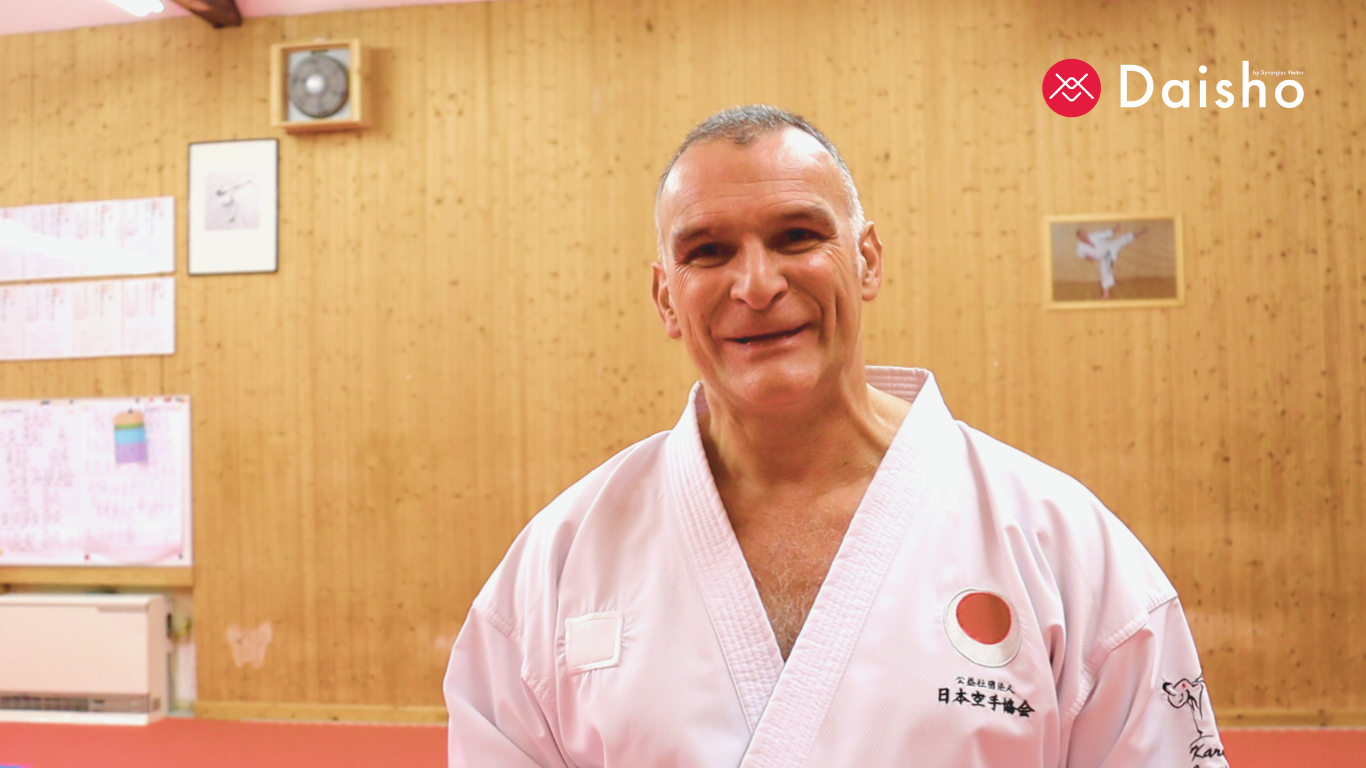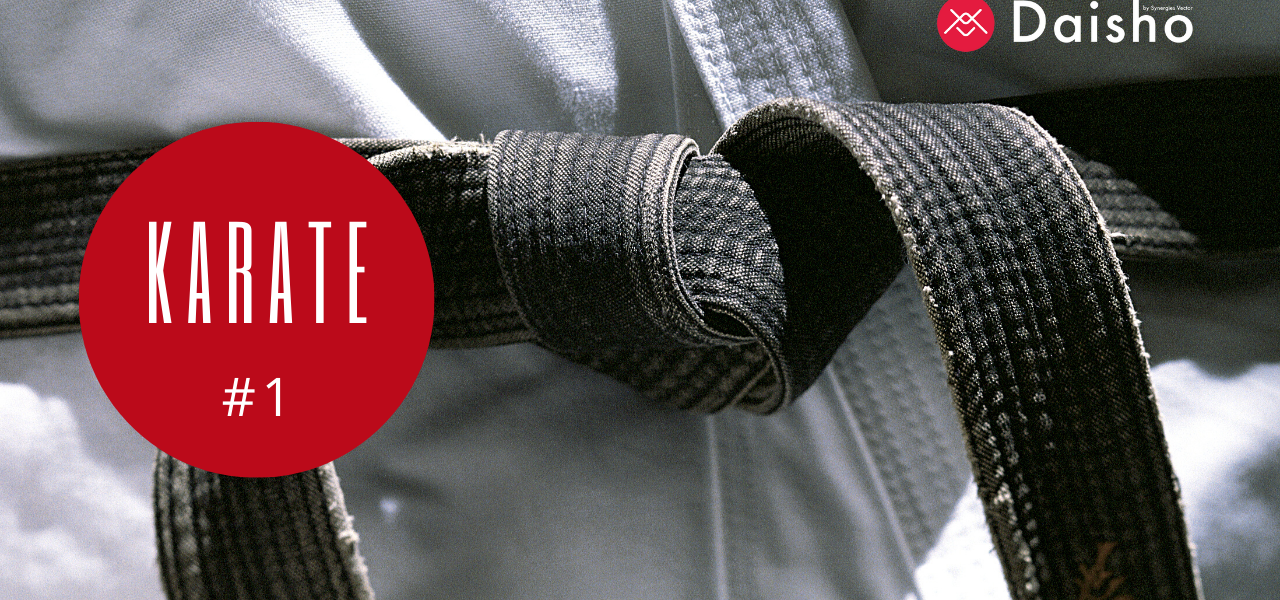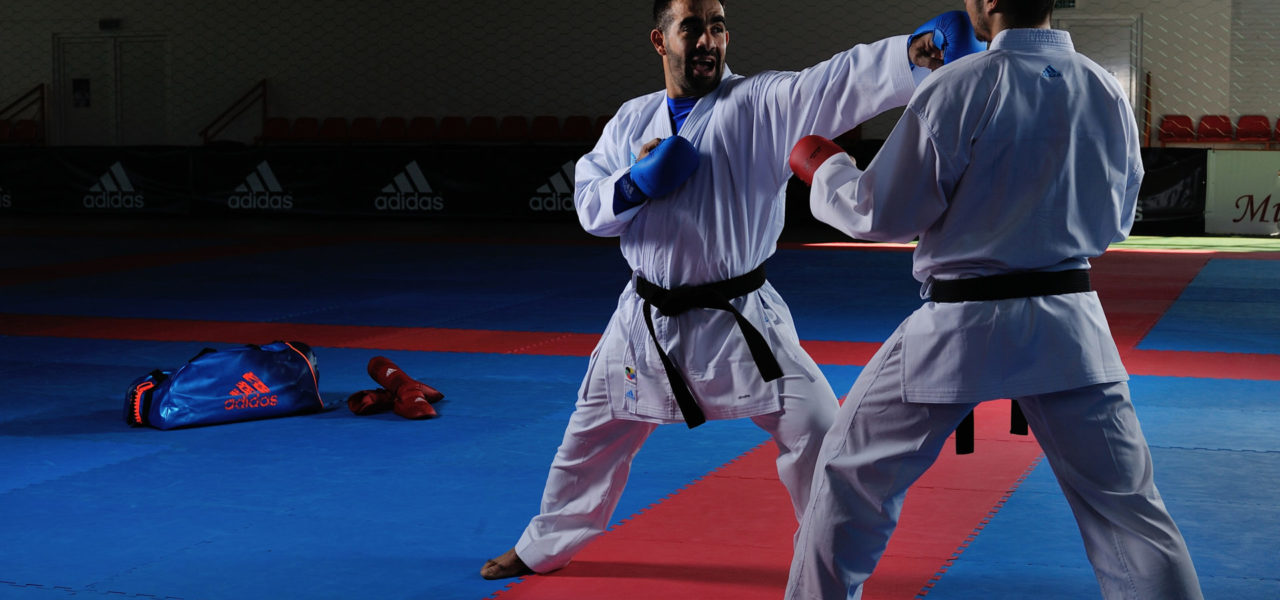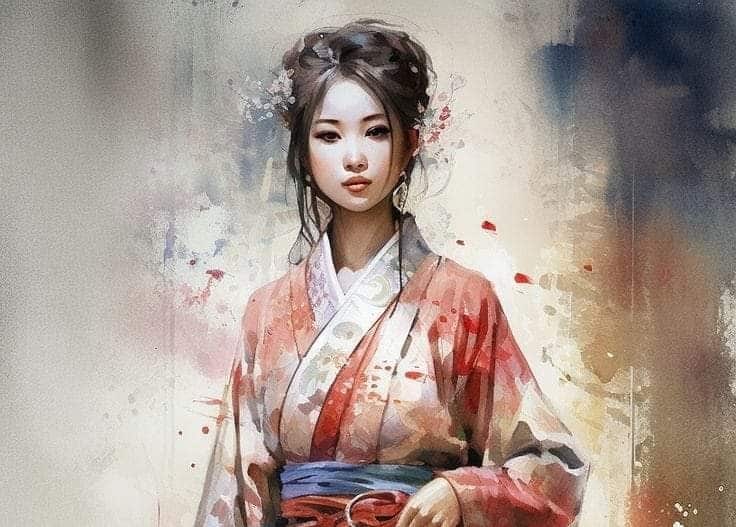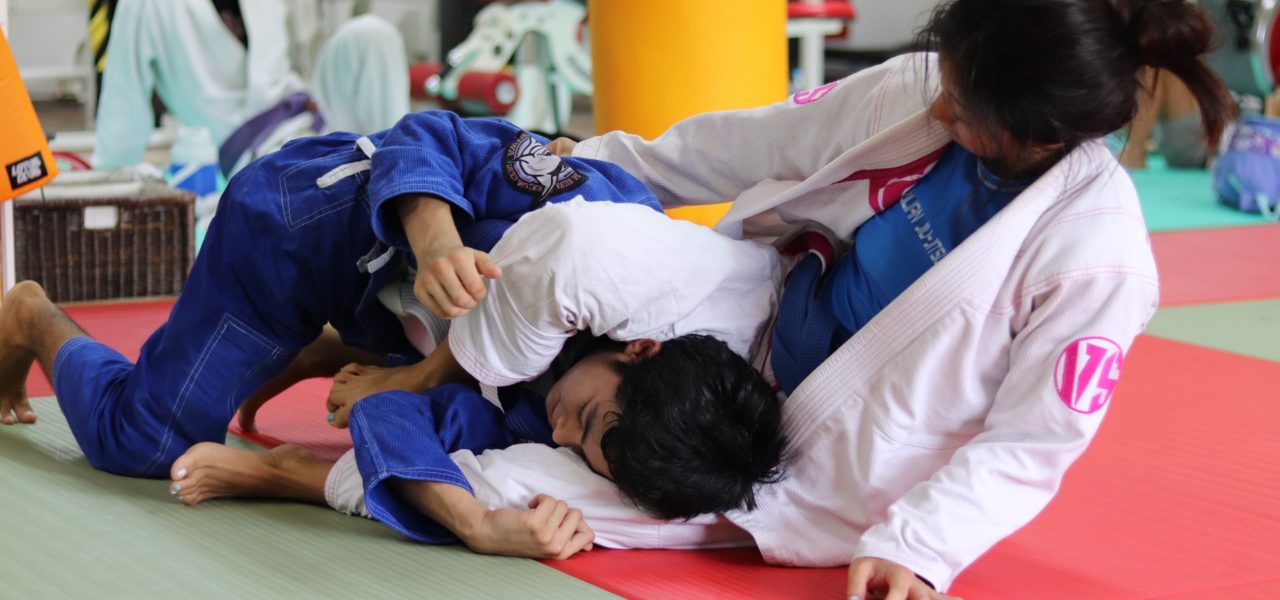Your cart is currently empty!
Thierry Coupin: The Way of a Karateka
Martial arts enthusiast, sensei at the Carnières-Morlanwelz dōjō, competition referee… Thierry Coupin has a multi-faceted profile! Today, this eternal enthusiast shares his vision of karate, its history and his opinion of Daisho e-commerce. “Rei!”
Hello Thierry! Thank you for agreeing to answer our questions. Could you tell our readers a little about yourself and your background?
Hello ! Thierry Coupin, I trained as a chemical engineer and my passion is karate, which I’ve been practicing since the age of 12. This year, we’ll be celebrating 45 years of practice! *Smile* I was a member of the national team and took part in the European Cup, the World Cup and of course all the federal and national championships. I went on to become a national and international referee. I have also held positions as administrator, president and vice-president of the French-speaking Karate Federation and the Belgian Karate Federation. So I’ve had a pretty full career and my greatest passion right now is teaching!
What does Shotokan Karate-Do bring to your daily life? How do you approach the discipline?
Karate gives me great stability and good stress management. I’ve often experienced stressful situations as a competitor and as a referee. For example, when you referee a European or World Championship final, you have all the fans and supporters present, so in everyday life, it’s a plus. It’s this side of karate that interests me, since it’s about the development of the individual.
Karate also brings me stability from a health point of view, apart from the injuries associated with competition and excessive sport. So it’s been very positive, both in my professional and family life and in my relations with the club and instructors.
What’s your fondest Karate memory?
My fondest memory as a competitor is my selection and participation in the Tokyo World Cup in 1992. It was the apotheosis for the amateur karateka that I am!
From the Club’s point of view, it was the transformation of this building into a real dōjō. It came to me the moment I got back from Japan. There, I trained in real dōjōs and not in sports halls.
It’s also, of course, the smile on the family’s face when I come back with a cup or even without one, as long as I do my best. It’s the moments shared with my family and the Club family that I remember most.
You’re a Sensei at the Morlanwelz-Carnières dōjō: what do you enjoy most about being a teacher?
Above all, it’s contact with young people, whether it’s with toddlers aged 3 and over or teenagers, but also with adults. We have a panel of people from all walks of life. People often tell me: “You don’t age! How do you do it?” Young people keep me young! It’s priceless to stay young in the head and always have plans for the future.
I’m also a certified instructor with the Japan Karate Association, so I’m still taking exams to raise my level from an international instructor point of view and improve the quality of my teaching.
You are also a board member of the French-speaking and national JKA (Japan Karate Association) federation. What is the purpose of this association?
There are two aspects: personal development through the practice of Karate-Do and the sporting aspect. I’ve had the opportunity to fight in both systems: the JKA and the World Karate Federation, which encompasses all karate “styles” and was included in this year’s Olympic disciplines.
After the competition, I was quickly invited to help with the administrative side of things. I was also asked to bring my professional “plus”, being a project manager. So I was able to transpose my knowledge. In the beginning, I was president of the Belgian Karate Federation, vice-president of the French-speaking JKA Federation, and now I’ve slowed down a bit by asking to be relieved of administrative duties. I’ve stepped down as president of the Belgian Karate Federation, but I’m still a director of the JKA.
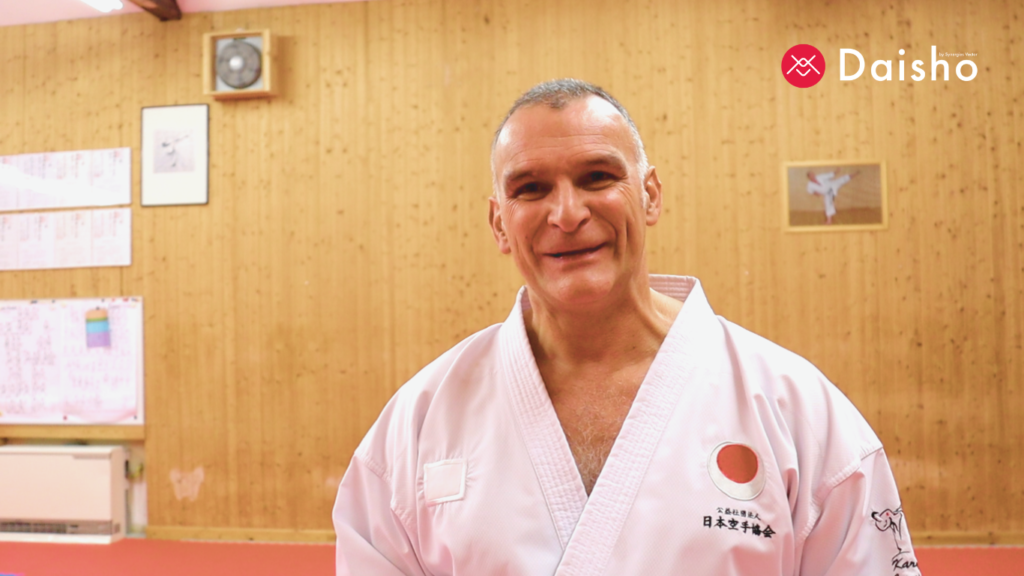
It’s been a complicated year on many levels, especially for athletes… How have you coped with the situation as a martial arts enthusiast, and how have you adapted to training and competition?
Covid was inevitably a bad year, but as I have a positive spirit, it enabled me to learn new things in the way of teaching, for example. Obviously, it wasn’t easy to teach in front of a camera and have no contact with the students. I gave up pretty quickly after, I think, 2 months of video lessons.
However, I adapted by deepening my knowledge of kata. I read a lot of reference books and wrote it all down. I could almost have published a book! Maybe that’s a goal for the future? I continued to train personally every day and was able to resume physical preparation, something I had abandoned a long time ago for lack of time. So I’ve restored my health.
Obviously, as soon as we were able to resume activities with the U13s, we started training again straight away and installed a double-flow ventilation system. We now have ventilation worthy of dōjōs professionals! We’ve set up the room differently, changed the way we teach, and we’re keeping it that way. It’s always said that there’s a “before” Covid and an “after” Covid, but the after Covid, certainly in the dōjō, will be of better quality thanks to the experience gained during this period.
What’s your secret to staying in Olympic shape? Are there types of exercise and movements that you often practice as a karateka?
The secret to my current fitness level? I don’t train at home. The home is a setting made for the family. The proof is that when I gave a video lesson, people sent me photos. When I saw the way people trained, I thought they were really brave!
Then there’s food. You have to live as healthy a life as possible – I’m not saying I don’t have a 3rd half with the club’s old hands from time to time *smile* – but I’m very careful about what I eat. I avoid drugs when I can treat myself naturally (obviously, it’s hard to get an “organic” vaccine for the virus *laughs*). I’m also very positive and always try to chase away the bad things around me. I also do physical preparation with a bit of weight training. Not too much, but just enough to maintain quality muscles!
WhatDaisho-related products /services do you appreciate and why?
I’ve talked about diet in terms of my physical fitness, and there are also dietary supplements to help with this aspect. Via Daisho e-commerce, we have access to a whole range of dietary supplements to keep us going. There’s a whole range of good-quality products. I’ve never had the slightest problem.
As far as equipment is concerned, it’s not always easy to find heavy equipment such as punching balls, punching bags or tatami mats. Thanks to Daisho / Synergies Vector, we have access to all this material!
There’s also a service behind it. This means that when you have questions such as, for example, “how to install a tatami correctly”, you receive personalized advice from Daisho. All things evolve, and the tatami mats of today are not those of my time. It used to be tile, wood or synthetic flooring. Now we really have a dojo with tatamis specific to each discipline, such as karate.
Thanks again to Thierry for his good humour and this pleasant exchange! Would you like to follow in his footsteps and grow within your discipline?

